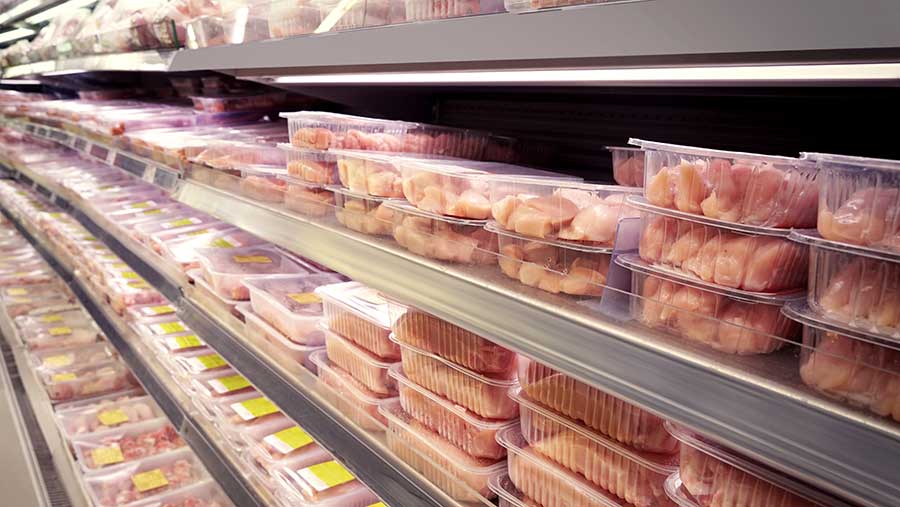Urgent call for new CO2 deal to ensure food and drink supply
 © Adobe Stock
© Adobe Stock Industry leaders are warning of potential food and drink shortages if a new deal cannot be found urgently to secure the country’s carbon dioxide (CO2) gas supply required for food production.
In September last year the government provided a temporary bailout for US company CF Industries’ ammonia plant at Billingham, County Durham, which produces CO2 for the UK market.
Ministers announced on 21 September that the government would cover the operating costs of the CF Fertilisers subsidiary for three weeks, allowing the industry to strike an agreement to ensure a sustainable supply of CO2 gas.
But that deal is set to end today (Monday 31 January) and no plans have been announced for maintaining long-term supplies.
See also: Relief as fertiliser and CO2 production set to continue at Billingham
CF Fertilisers supplies about 60% of the UK’s food-grade CO2 gas, which is used primarily in food packaging, making drinks fizzy, and as a humane method of stunning pigs and poultry before slaughter.
The gas is a by-product of the manufacture of ammonia, and the September agreement to enable the restart of production at the Billingham plant averted potential supply chain disruption.
CF Fertilisers had halted operations at its plants at Billingham and Ince, Cheshire, in response to soaring global liquefied natural gas (LNG) prices.
Gas prices could increase further if conflict breaks out between Russia and Ukraine and the supply of LNG from Russia to the European market is cut off.
Letter to government
The Food and Drink Federation (FDF) and multiple other trade bodies have sent a letter to business secretary Kwasi Kwarteng and Defra secretary George Eustice calling for government to step back into the fray and work with industry to ensure continuity of supply.
The organisations have called for a new deal to be struck immediately to avert a supply crisis and further increases to food prices, which have already seen big jumps in recent months.
“We will continue to work with the government on this,” an FDF spokesman told the BBC. “It is critical that together we ensure supply can continue and that we build long-term resilience into the production of food-grade CO2.”
Nick Allen, chief executive of the British Meat Processors Association (BMPA), told Radio 4’s Today programme on Friday (28 January) that if a new deal was not struck between CF Industries and suppliers there would be a “tremendous impact” on the industry, and prices would have to go up considerably.
However, Mr Allen had received assurances from the government that if CF Industries were to shut down again, animal welfare would be prioritised along with the NHS and the nuclear industry.
“The frustration in the food industry is that we’re at a distance from these negotiations which are going between suppliers and CF Industries, and… we still have no idea what’s going to happen.”
The Association of Independent Meat Suppliers (Aims) said the end of the government support package meant CF Fertilisers was “free to sell their CO2 to whoever wishes to buy it and at whatever price they are prepared to pay”.
Tony Goodger, a spokesman for Aims, said: “The UK cannot afford to keep having cyclical challenges to CO2 and the government needs to firstly ensure that this industry is added to the list of industries that are critical to the country’s infrastructure.”
Aims said the government must take CO2 supply seriously and work to ensure a security of supply, including CO2 capture from landfill and anaerobic digesters, perhaps with this being a condition of planning, and also by offering research money for universities to look at alternative gases for use in pig and poultry processing and food packaging.
NFU vice-president Tom Bradshaw said: “We are concerned that any uncertainty over production could mean further CO2 shortages, leading to possible shortages in the products we find on our supermarket shelves.
“The supply issues we have experienced highlight a key fragility in the UK food system, and by extension the vulnerability of UK food security.
“Government must recognise and continue valuing British food and farming and develop policies that support its resilience.”
Further supplies
Since the autumn agreement, Farmers Weekly understands that further supplies of CO2 have come online, including at Wilton, Teesside-based Ensus and from additional imports and existing sources such as anaerobic digestion.
Businesses also have stocks of gas to help protect them from some short-term disruptions.
The government has indicated that the CO2 suppliers will have to find their own solution this time.
A spokesman for the Department for Business, Energy and Industrial Strategy said: “We welcome industry’s agreement in October to ensure CF Fertilisers on Teesside can continue to operate even during the current period of high global gas prices.
“It is for the CO2 industry to ensure supplies to UK businesses.”
